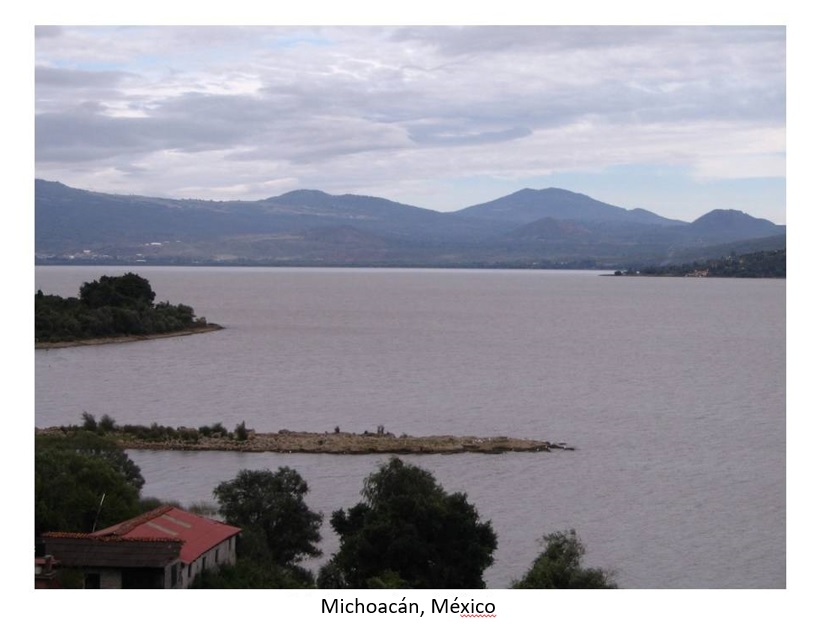MARTHA MENDOZA
Ph. D., University of California at Berkeley
Professor
Areas of Expertise:
Linguistics
Hispanic Linguistics
Mesoamerican languages
E-mail: mmendoza@fau.edu
Office Phone: 561.297.3860
Dr. Martha Mendoza teaches Linguistics and Spanish Linguistics. She has taught courses on History of Spanish, Structure of Spanish, Spanish Morpho-Syntax, Spanish Phonology & Dialectology, Semantics, Pragmatics, Bilingualism, Grammaticalization, Cognitive Linguistics, Typology, and Endangered Languages, among others. Her research fields include linguistic politeness, grammaticalization, language contact, bilingualism, spatial language, Nahuatl, P'urhepecha, and Spanish varieties.
In Spring 2006, Dr. Mendoza was a Visiting Associate Professor at the University of California at Berkeley, where she taught Hispanic Linguistics. In 2008, she won the award for Excellence and Innovation in Undergraduate Advising.
In Fall 2019, Dr. Mendoza delivered a Keynote address titled Grammars of Space: The Case of Nahuatl and P'urhepecha at the I Jornadas Internacionales de Estudios Lingüísticos (JELing 2019), held at the National University of Cuyo in Argentina.
Currently, she is working on the compilation of a bilingual dictionary P’urhepecha-Spanish.
Some of her publications are:
Bellamy, K., & Mendoza, M. (2024). The language of texture in P'urhepecha: Initial observations. LIAMES, 24, 1-20.
https://periodicos.sbu.unicamp.br/ojs/index.php/liames/article/view/8674526
https://periodicos.sbu.unicamp.br/ojs/index.php/liames/article/view/8674526/33807
Mendoza, M. (2022)
. Rasgos léxicos y morfosintácticos del español en el purépecha:
Un ejemplo de contacto lingüístico en el oeste de México. In L. Zajícová (Ed.),
Lenguas indígenas de América Latina: Contextos, contactos, conflictos
(pp. 135-151). Madrid/Frankfurt: Editorial Iberoamericana/Vervuert.
https://www.iberoamericana-vervuert.es/FichaLibro.aspx?P1=199692&ISBN=9788491922636&TITULO=Lenguas%20ind%C3%ADgenas%20de%20Am%C3%A9rica%20Latina.%20$bContextos,%20contactos,%20conflictos%20/$cLenka%20Zajicova%20(ed.)
Bellamy, K., & Mendoza, M. (2021). Body-part terms and morphological complexity in P’urhepecha. Cahiers de Lexicologie, 119(2), 51-71.
https://classiques-garnier.com/cahiers-de-lexicologie-2021-2-n-119-lexique-et-corps-humain-body-part-terms-and-morphological-complexity-in-p-urhepecha.html
Mendoza, M. (2019). Spatial Language and the Use of Body-Part Terms in Nahuatl and P'urhepecha. Proceedings of the Florida Linguistics Yearly Meeting 5, 6(1), 37-50. https://journals.flvc.org/floridalinguisticspapers/article/view/116771
Mendoza, M. (2017). La conceptualización lingüística del paisaje: El caso del purépecha. In M. Bortolon, E. del C. Pérez, M. Montes & P. García Ficarra (Eds.), Aportes a la lingüística cognitiva (pp. 263-277). Córdoba, Argentina: Editorial de la Universidad Nacional de Córdoba.https://aalico.com.ar/aportes-a-la-linguistica-cognitiva/
https://revistas.ucr.ac.cr/index.php/kanina/issue/view/2491
Mendoza, M. (2016). Spanish and P'urhepecha: Mutual Influences in an Ongoing Case of Language Contact in Central Western Mexico. Thesaurus, 58, 156-179. http://thesaurus.caroycuervo.gov.co/index.php/thesaurus/article/view/579
Mendoza, M. (2016). Politeness Strategies in a Mesoamerican Language Isolate: The Case of P'urhepecha. Línguas Indígenas Americanas, 16(1), 139-156.
Mendoza, M. (2012). La gramática de las partes del cuerpo: Un breve estudio de los sufijos corporales del purépecha. In G. E. Müller, L. Miñones & V. Barbeito (Eds.), Estudios de lingüística cognitiva (pp. 163-171). Mendoza, Argentina: Editorial de la Universidad Nacional de Cuyo.
https://aalico.com.ar/estudios-de-linguistica-cognitiva/
Mendoza, M. (2007). Derivational Resources in P'urhepecha: Morphological Complexity and Verb Formation. Acta Linguistica Hungarica, 54(2), 157-172.
Mendoza, M. (2006). Spatial Language in Tarascan: Body Parts, Shape, and the Grammar of Location. In Z. Antic et al. (Eds.), Proceedings of the 32nd Annual Meeting of the Berkeley Linguistics Society (pp. 237-249). Berkeley, CA: Berkeley Linguistics Society.
Mendoza, M. (2005). Polite Diminutives in Spanish: A Matter of Size? In S. Ide & R. Lakoff (Eds.), Broadening the horizon of linguistic politeness (pp. 163-173). Amsterdam/Philadelphia: John Benjamins.
